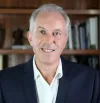Australians Help African Island

Mauritius is a sugar cane-draped, island nation off the coast of Africa, suffering from a modern malaise. The 45,000 small producers who grow the fresh produce for the 1.4 million inhabitants of the island are using more acid/salt fertilisers each season and applying more farm chemicals each year, with less and less response. This mirrors the global unsustainability of conventional agriculture, where more chemicals are used every year but every year there is an actual increase in pest and disease pressure. Last year saw the single largest increase in chemical use worldwide (14%) and there is an obvious question mark about the ongoing sustainability of this symptom-treating approach.
Mauritius may yet prove to be the unfortunate showpiece of this unsustainability as they are now suffering a plague of cancer. Graeme Sait is the CEO of Nutri-Tech Solutions (NTS), an Australian company that specialises in a hard science-based, problem solving approach called Nutrition Farming®. He has recently returned from a consulting visit to Mauritius and he was alarmed at what he found there:
“I found some of the worst quality foods I have ever seen in the supermarkets. Growers march their fields equipped with motorised back pack sprayers filled with concoctions of toxic chemicals in an attempt to manage their ever increasing pest problems. The day I arrived the newspaper carried the bad news story that Mauritians now have one of the highest cancer rates per head of population in the world”.
Graeme Sait presented to key Government representatives for half a day before providing an intensive one day course for the Government agronomists. He comments, “The agronomists were really hungry for viable solutions. They were all aware that the current approach had failed and were keen to embrace change”.
NTS promotes a mineral and microbe balancing approach that addresses root causes of crop problems. They have a team of agronomists analysing soil and leaf tests from over 40 countries and they have developed many innovative problem solvers amongst their large product range. Sait expands upon the outcomes of his visit to Mauritius:
“I visited a variety of growers, gave hard hitting TV and newspaper interviews and generally tried to spark change. On the last day of my visit we visited the Prime Minister’s office for an in-depth discussion. At this point it seems likely that the Government will sponsor our four-day course (NTS Certificate in Sustainable Agriculture) in Mauritius in 2013, so more positive change will come from that”.
Food quality, nutrient density and the inherent medicinal quality of food is directly linked to the way that food is grown. High rates of synthetic fertiliser and farm chemicals deliver substandard food, and human health suffers as a result. Sait explains:
"It really is a double whammy. Not only does this food lack some of the trace minerals required to support immunity and detoxification but it can also feature chemical residues that further assault our defence capacity. We are hopeful that we can teach Mauritians the cutting-edge strategies that will enable them to free themselves from their current vicious cycle”.
